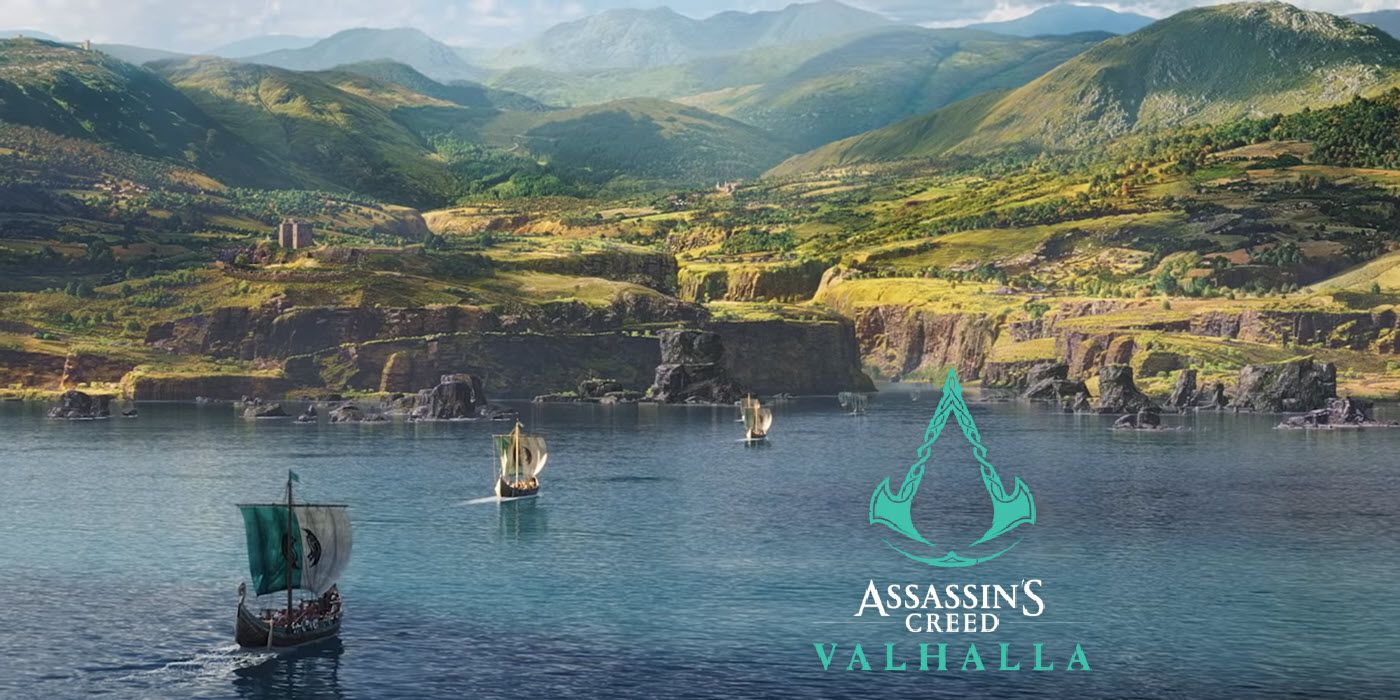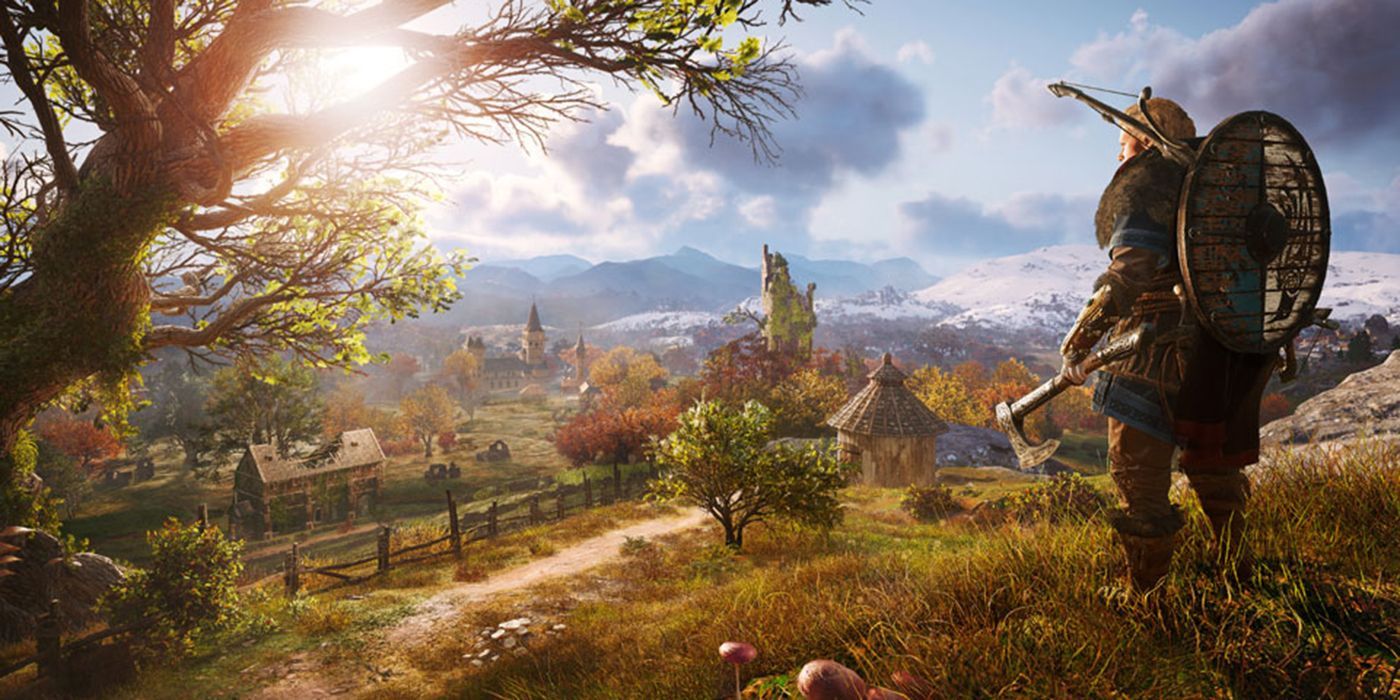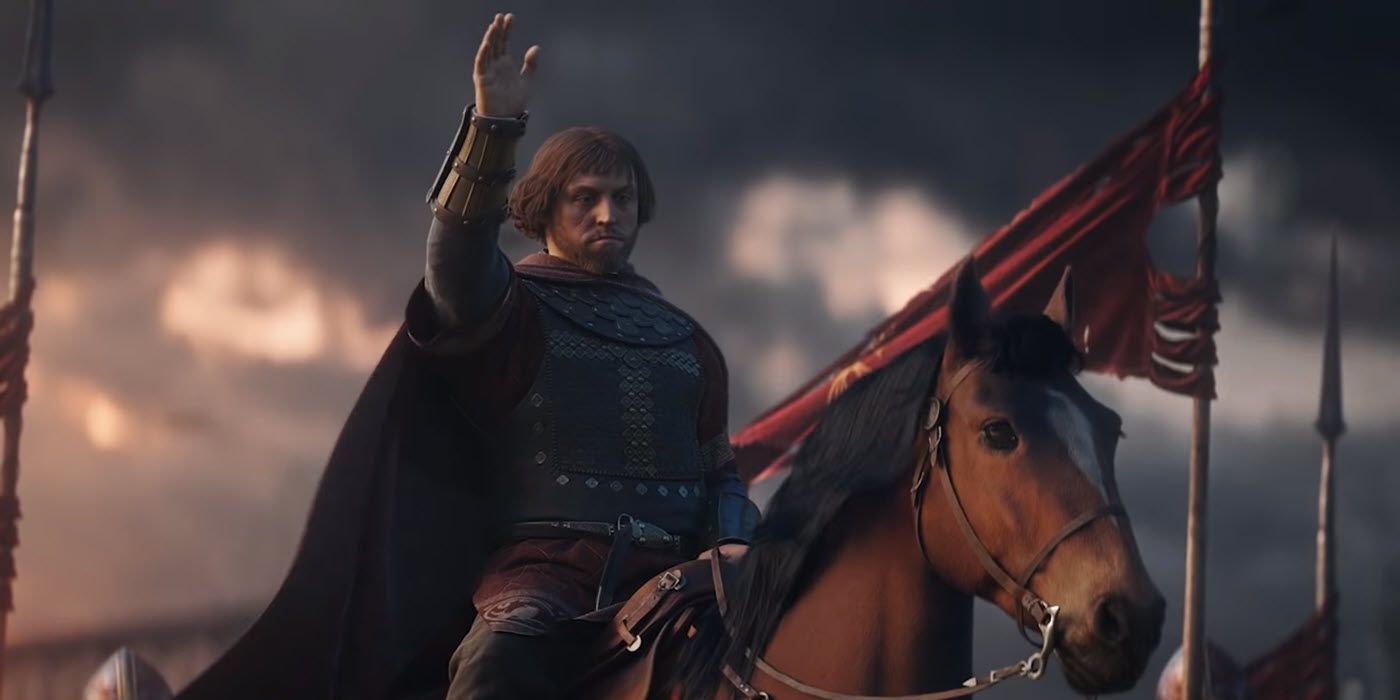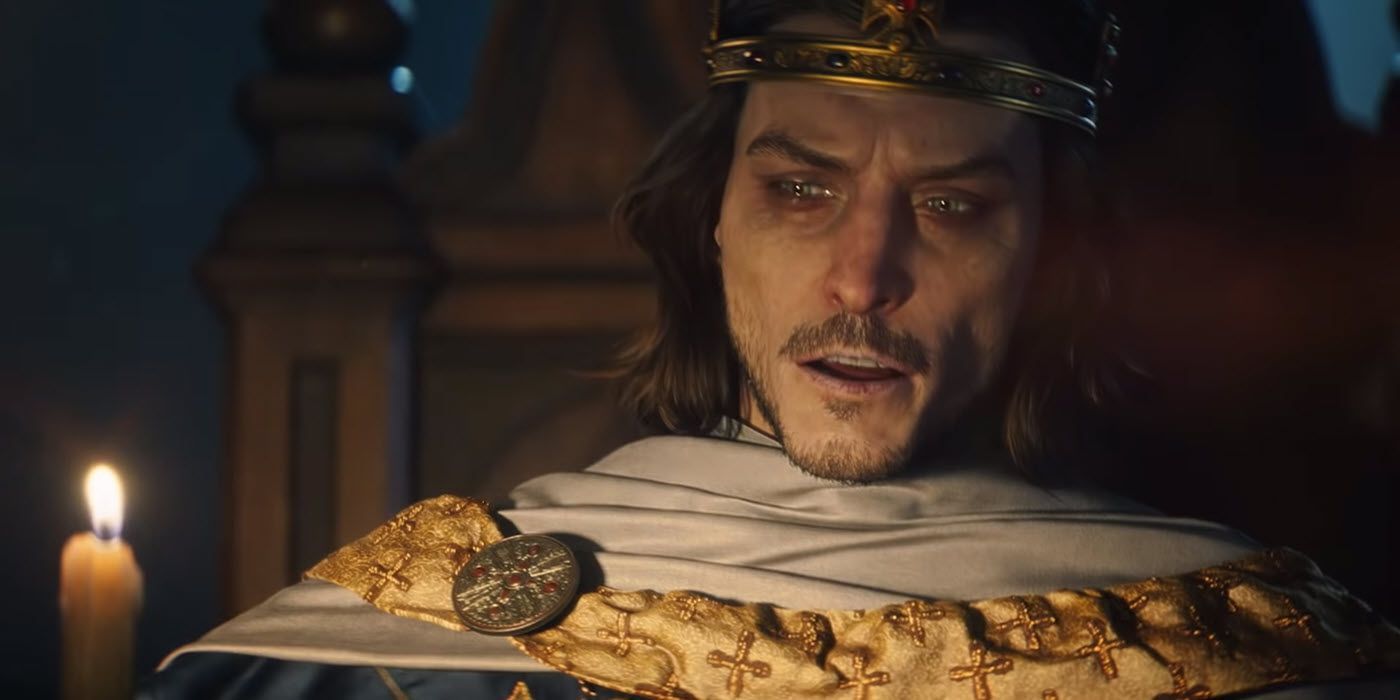Arriving later this year, Assassin's Creed Valhalla will let players live out their Viking fantasies. As revealed in the debut cinematic trailer, players are stepping into the 9th century during the Age of Vikings. As lead protagonist Eivor, players will be sailing from Norway to raid, pillage, and establish a new settlement on the shores of the British Isles.
However, things during this era are not quite as they are currently. In the 9th century, England was fractured into multiple kingdoms and not as unified as things are today. As such, the Vikings were able to score a foothold, leading to a century of skirmishes, battles, and shifting territory. Assassin's Creed Valhalla seems to be posed to showcase at least a portion of this uncertainty from the perspective of the Vikings, letting players organize raids as well as lead assaults against fortified Anglo-Saxon positions.
While the map of Assassin's Creed Valhalla is yet to be shown by Ubisoft, the developer has revealed that the Kingdoms of Wessex, Mercia, East Anglia, and Northumbria will be heavily featured. Here's what fans need to know about these kingdoms.
The English Kingdom in the 9th Century
By the time players will be stepping into the shoes of the Viking Eivor in the game, England will have been divided into numerous kingdoms for about four hundred years by that point. Essentially having developed out of the fall of the Roman Empire, Anglo-Saxton England wouldn't be united until 927. Each of the four major kingdoms experienced their own rises and falls throughout this lengthy period of Medieval time, and as lead writer for Assassin's Creed Valhalla Darby McDevitt confirmed, each will be heavily represented inside of the game.
Northumbria
The Medieval Anglian kingdom of Northumbria existed in what is now known as Northern England and the south-eastern part of Scotland. It came into prominence in the early part of the 7th century when the territories of Deira and Bernicia unified after often being in conflict with one another. Following this unification, the kingdom became renown for its military strength and the region entered a golden age due to its religious, artistic, and intellectual achievements during the late 7th and early 8th century.
However, its location would place Northumbria directly in the cross-hairs of the Vikings. Southern portions of the Kingdom, including the major city of York, were faced by constant raids, conflicts, and battles. Making matters worse were the in-fighting that had also begun in the 8th century, making them an easier target for the Vikings who began to settle the area. York was eventually renamed by the Norse to Jorvik, until it was eventually retaken and liberated in the 10th century.
Mercia
Mercia, a word which means border people, was one of the most powerful kingdoms of Anglo-Saxon England. It existed in an area of England known known as the midlands, bordering Wales and actually didn't have a capital unlike the other kingdoms. Its territory included the modern locations of Derbyshire, Staffordshire, Nottinghamshire, and Warwickshire.
For about 300 years, Mercia reigned as the leader of the other English kingdoms under the watchful care of Aethelbald and his cousin Offa. In fact, King Offa was able to put together the start of a single English state with the other kings treated more like his subjects than equals. Other continental rules of the time, like Charlemagne, treated Offa as a political equal, legitimizing him as the English leader.
Due to its central location in England, the Vikings caused the kingdom great suffering as the raids and conflict began to increase. Offa's death before the turn of the 9th century saw the kingdom enter a period of rapid decline and even saw the territory eventually split into an English and Danish area. With the decline of Mercia, Wessex began its rise in the hierarchy.
East Anglia
The third of four kingdoms is East Anglia, a smaller region of England taking up space in the extreme eastern portion of the country. Specifically, East Anglia included modern areas like Norfolk, Suffolk, and the eastern part of The Fens. After its creation, the kingdom was largely ruled by the Wuffingas dynasty of kings until about 749. One of its most powerful kings was Raedwald, who also became the first East Anglian king to be baptized in the Christian faith. Interestingly enough, while Raedwald adopted Christianity, he also continued to worship the old pagan gods as well.
The region's ascension quickly caught the attention of its neighboring kingdom of Mercia who began to not only push back on the smaller kingdom but eventually vassalize it under them. The previously mentioned King Offa of Mercia executed the current king and took control of the East Anglian Kingdom entirely. While the kingdom eventually fought for freedom once again in the early parts of the 9th century, it would be short lived when the Vikings and their Great Heathen Army invaded in 865. Four years later, the kingdom ceased to exist at all as the Danes captured the territory completely and used it as a staging ground to go after the other three kingdoms. Danelaw effectively gave the Vikings a major foothold in England.
Wessex
The final Kingdom in this era is Wessex, who would prove to be the most important of the four kingdoms, hence why one of its leaders is predominantly featured in the reveal for Assassin's Creed Valhalla. During this period of time, the Kingdom of West Saxons, or Wessex for short, occupied the southern most sections of modern day England. This includes places like Cornwall, Devon, Somerset, Hampshire, and at times, north of the River Thames.
Wessex could be described as a late bloomer in the four Kingdoms, largely retaining its independence through the heights of Northumbria and Mercia. However, the region began to grow in power and dominance as Mercia began to fall apart with the arrival of the Danes. Wessex became known for its resistance to the Viking invaders after they had largely destroyed the three other kingdoms. Wessex stood against them and achieved numerous victories against them. One of its most well known rulers is Alfred, who was able to push back the Viking invaders, take back control of London, and ushered in an age of prosperity through educational, law, and military reforms.
This kingdom is vitally important as its ruling dynasty would eventually go one to become kings of England. Alfred's grandson Aethelstan would go on to conquer the remaining Danish-held territory including the former kingdom of Northumbria, effectively uniting England.
Assassin's Creed Valhalla launches Holiday 2020 for PC, PS4, PS5, Stadia, Xbox One, and Xbox Series X.




